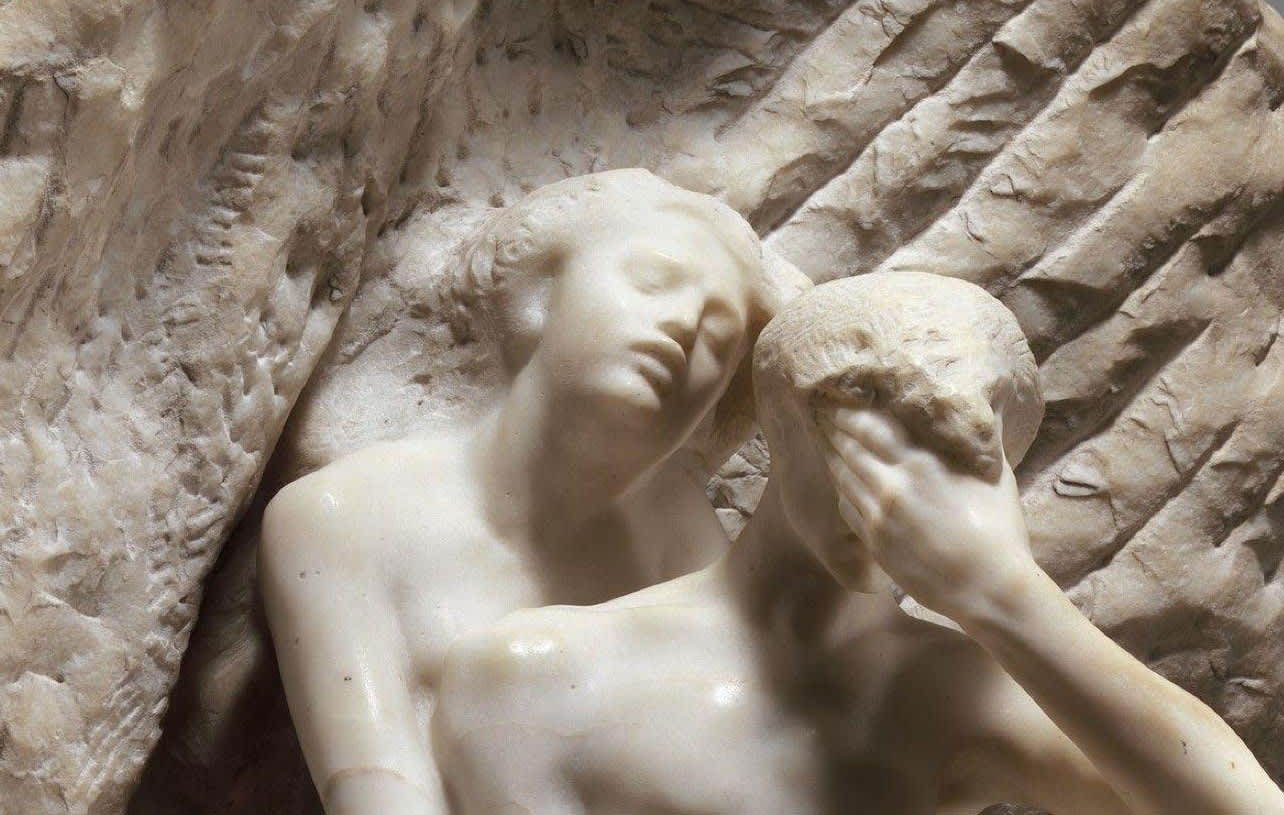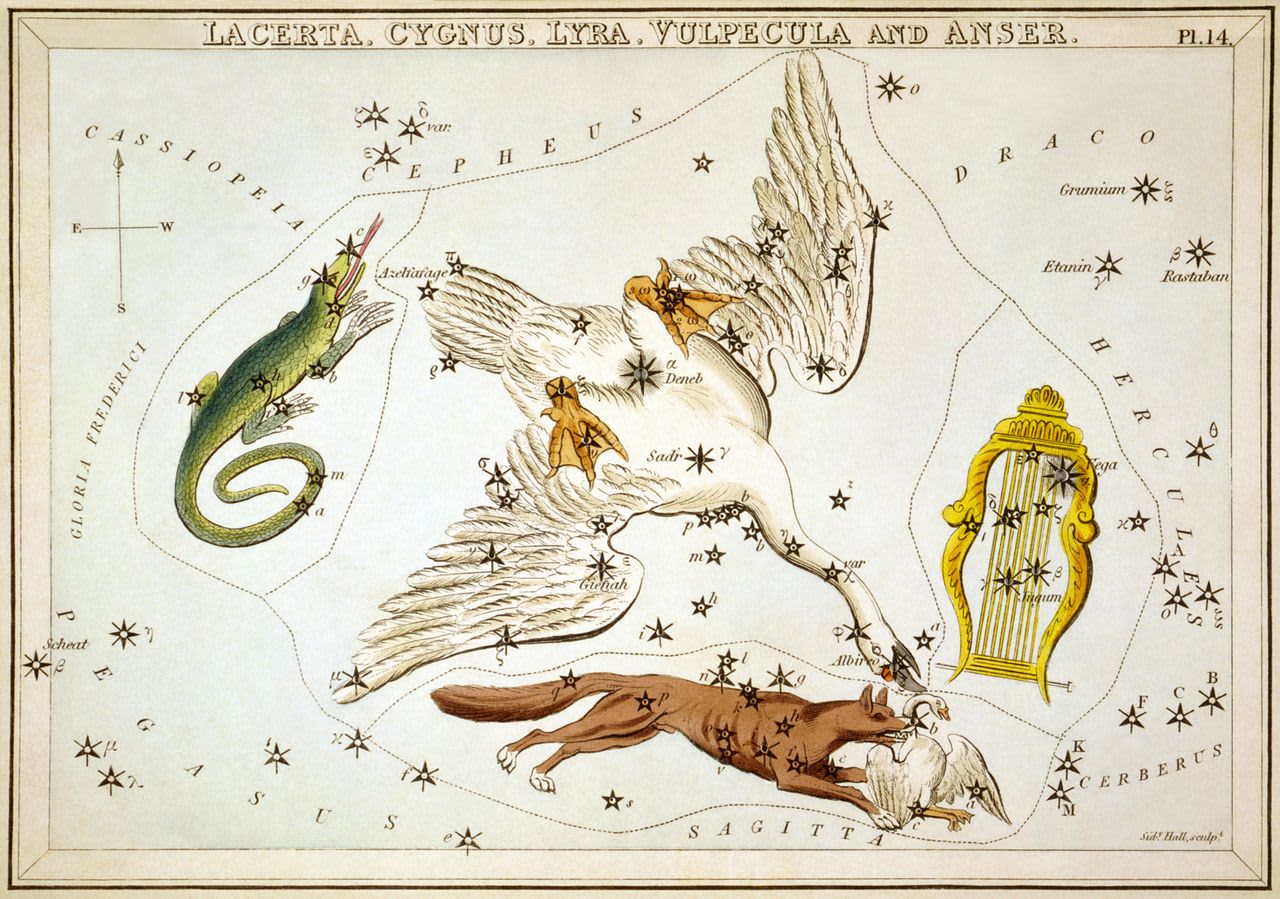Inspired by the world premiere of Eurydice, by composer Matthew Aucoin and librettist Sarah Ruhl, artists and scholars from across the city are gathering for a festival of performances, conversations and happenings this January through March. Through this Eurydice Found Festival, we are all invited to take a journey of discovery, and plumb the depths of this ancient myth’s hold on us. With more than 50 events happening in scores of locations, it may be difficult to not bump into Eurydice or Orpheus themselves.

Indeed, in some ways, the music of Orpheus will be everywhere thanks to the constellation Lyra. The Lyra constellation lies in the northern sky and represents the lyre of Orpheus. It was first catalogued by the astronomer Ptolemy in the 2nd century. Many star gazers will remember that Lyra contains Vega, the fifth brightest star in the sky and second brightest star in the northern hemisphere.

One of our favorite scholars and stargazers, Dr. Ed Krupp, will be speaking about Lyra as part of post-opera event on February 16 at LA Opera in the Stern Grand Hall. This and all post-opera events are open and free to everyone attending the opera on individual dates. Dr. Krupp is an astronomer, researcher, author, and popularizer of science. He is an internationally recognized expert in the field of archaeoastronomy, the study of how ancient cultures viewed the sky and how those views affected their cultures. However Angelenos know his best as the beloved long-timer director of our own Griffith Observatory.

Dr. Krupp is also a particular fan of Orpheus and his lyre Lyra, “Lyra plays its heavenly anthem in honor of Orpheus, who once owned this musical instrument. Orpheus was a legendary Thracian troubadour and the founder of an ancient mystery cult. According to the Roman poet Manilius, his performances could 'impart sleep to waves, feeling to rocks, tears to Pluto, and finally a limit to death.' Orpheus was a virtuoso. He was said to be the world's first musician, and with the kind of distinction our era has conferred upon Bob Dylan, he was also recognized as a poet and prophet. His songs were regarded as revelations rooted in cosmic harmonies. He was a star whose performances during the Argo's quest for the Golden Fleece surpassed the Sirens, soothed the crew, and stilled the waves. But Orpheus, like Buddy Holly, Elvis Presley, Jimi Hendrix, Sam Cooke, Robert Johnson (King of the Delta Blues), and other legendary musical celebrities, came to a bad end. Long before John, Paul, George, and Ringo had to flee from insistently giddy Beatle-maniacal girls, Orpheus was torn apart by maddened Thracian women. After he was killed, his harp was lifted into the heavens as Lyra.”
Thus not only was Orpheus the first musician and poet, he was and remains a star. To listen to Dr. Krupp more, you can check out this podcast, and join us for Eurydice on February 16, 2020.








